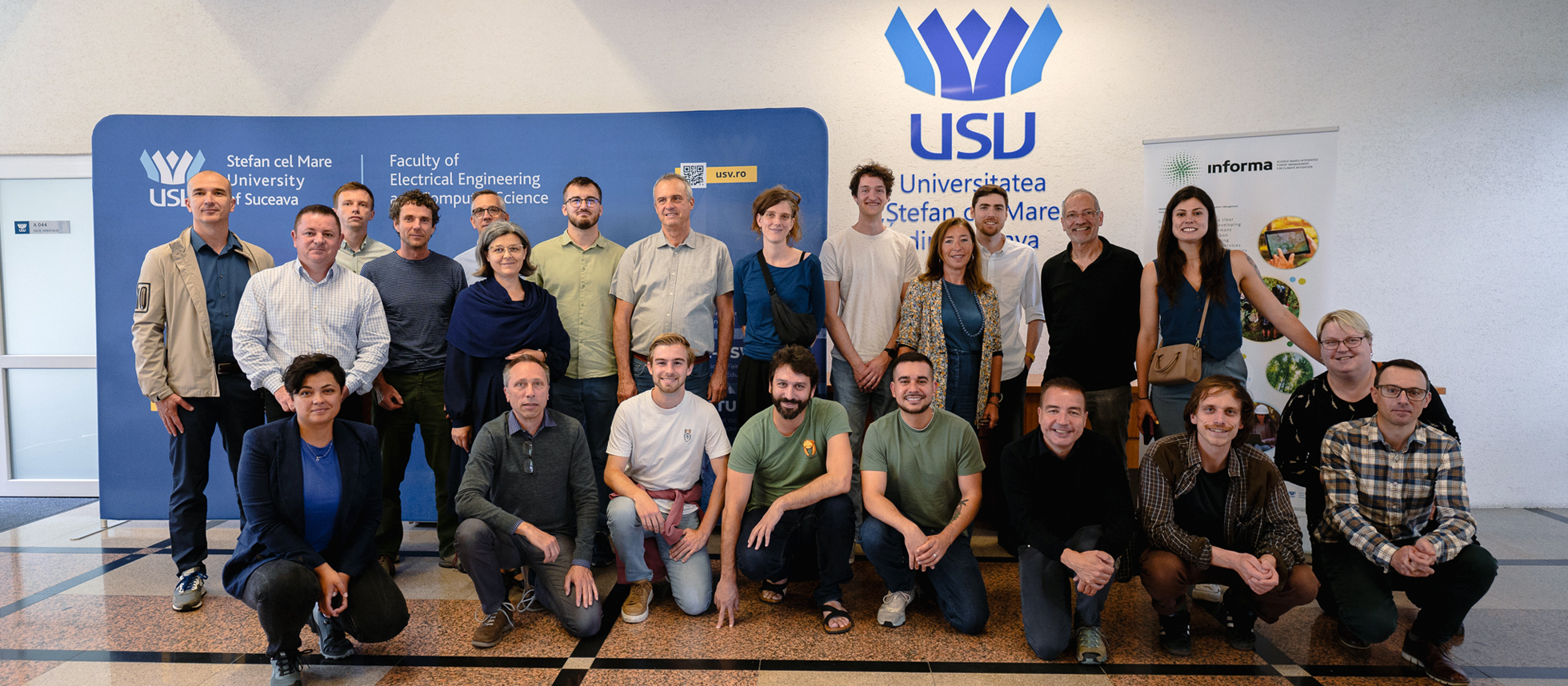On 11 and 12 June, the city of Suceava, in the heart of the Romanian Carpathians, hosted the 7th General Assembly of the European INFORMA Forests project — a key initiative aimed at adapting forest management to the challenges of climate change and promote more sustainable forestry across Europe.
The meeting, organised by the Ștefan cel Mare University of Suceava, brought together over 30 researchers and institutional representatives from the 14 consortium partners, spanning 8 European Union countries.
Coordinated by the Climate Change and ICT Research Group of the ITACA Institute at the Universitat Politècnica de València (UPV), and led by Professor José Vicente Oliver, INFORMA is at the cutting edge of developing scientific and technological tools to enhance forestry practices in a changing climate.
Meeting highlights
During the assembly, progress on the project’s various work packages was reviewed. Highlights included training programmes already underway, developed from surveys carried out with local stakeholders at the start of the initiative.
“This training is essential to adapt forestry practices to new socioeconomic conditions”, said Eduardo Rojas, an ITACA researcher who attended the event.
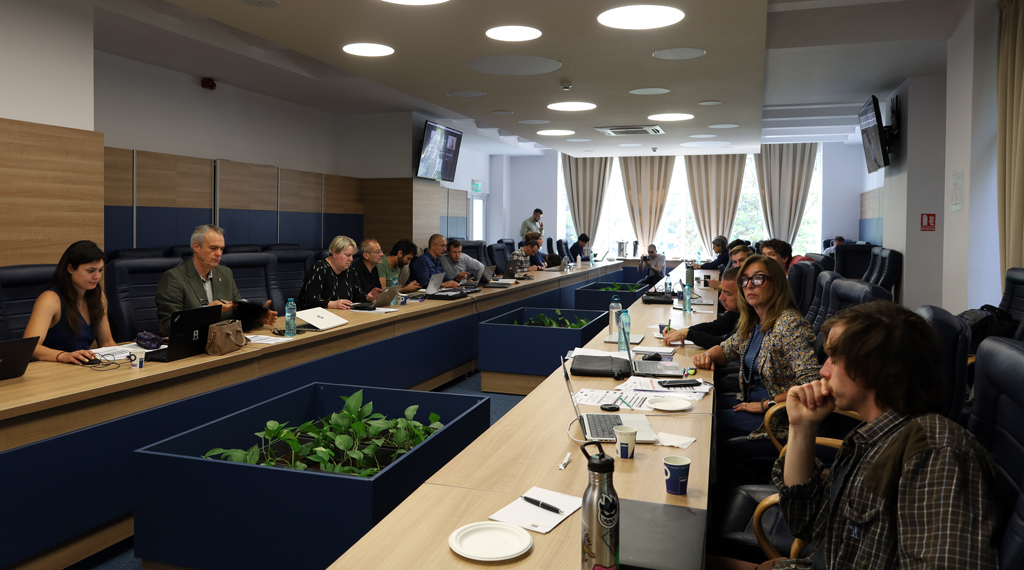
Another key topic was the role of integration forums — dialogue spaces for scientists, forest managers and policymakers to translate scientific knowledge into viable management strategies.
“In parallel, data collection is nearing completion, which will enable us to assess the impact of different management techniques on carbon stocks using remote sensing technologies. This line of work paves the way for future applications in forest carbon credit certification”, explained Celia Yagüe, ITACA researcher and technical coordinator of the INFORMA project.
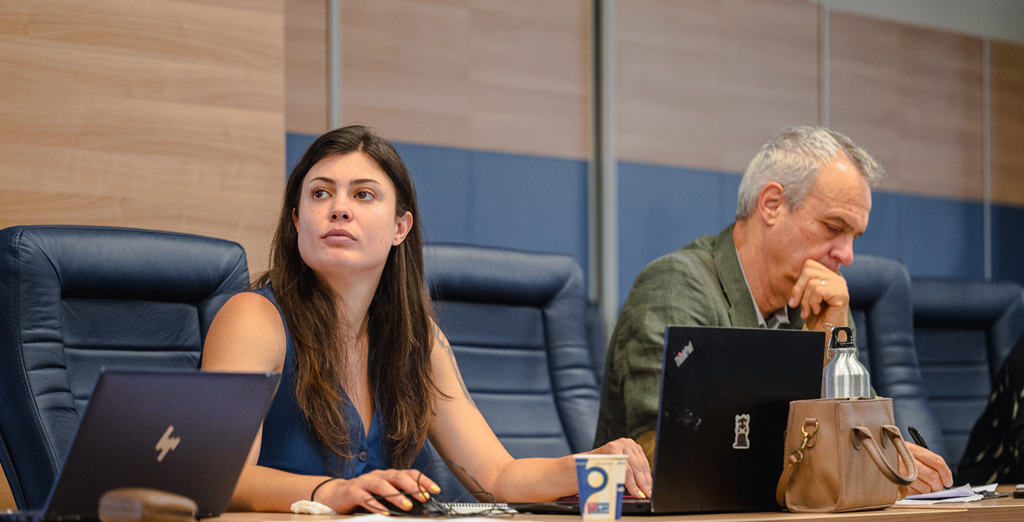
In terms of communication, the need to broaden the project’s social outreach was emphasised. Highlights include INFORMA’s presence at international events such as the Carbon Farming Summit and the exploration of new science outreach formats — for example, a “speed dating” session with science journalists to scheduled to be held in Budapest this October”.
The working agenda also included a technical visit to the Slătioara Forest Reserve, a UNESCO World Heritage Site and part of the “Ancient and Primeval Beech Forests of the Carpathians”. This field trip offered participants the opportunity to reflect on the value of well-preserved ecosystems as reference models for future forestry.
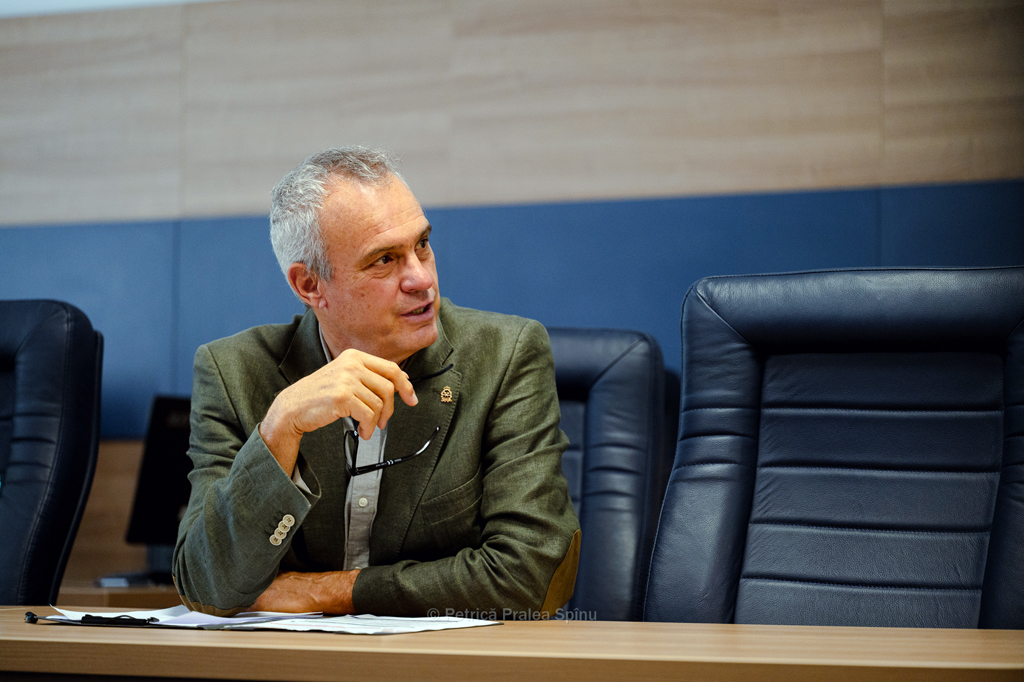
“The working groups are continuing to collect key data across the project’s five bioregions — such as aboveground biomass, deadwood, and belowground carbon — essential for calibrating the forest models being developed,” added Eduardo Rojas.
Project significance and future objectives
Alongside the progress presented at the assembly, the project team emphasised the intensified efforts over the past year to analyse the current shortcomings and barriers in the forest carbon certification system. Improvement proposals are being made in line with the EU Regulation on Carbon Removals and Carbon Farming (CRCF), which is set to come into full effect soon.
Celia Yagüe, the project’s technical coordinator, highlighted recent advances in the development and testing of innovative technologies for forest carbon monitoring:
“These include field applications assisted by LIDAR for estimating biomass and infrared spectroscopy systems for on-site soil carbon analysis. Such technologies can greatly improve the accuracy of carbon accounting and reduce associated costs”.
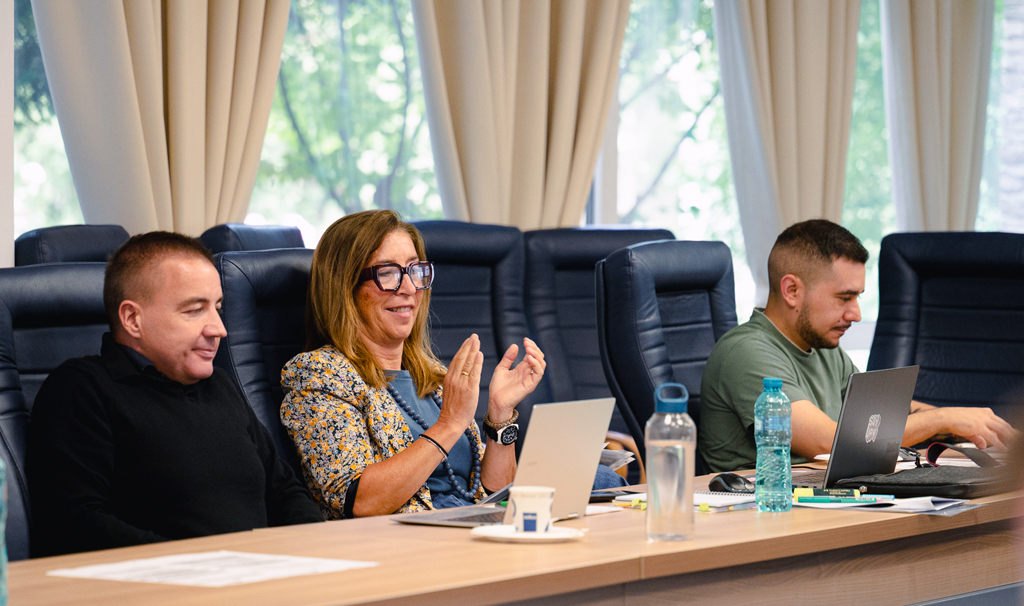
The project has also focused on enhancing the climate resilience of forest ecosystems. Professor José Vicente Oliver warned that the effects of climate change — such as fires, storms, or pest outbreaks — are intensifying, threatening the permanence of carbon stored in Europe’s forests.
“At INFORMA, we are working to provide scientifically grounded guidelines to design dynamic protection systems adapted to each bioregion — systems capable of integrating climate risks and safeguarding the integrity of forest projects in the long term».
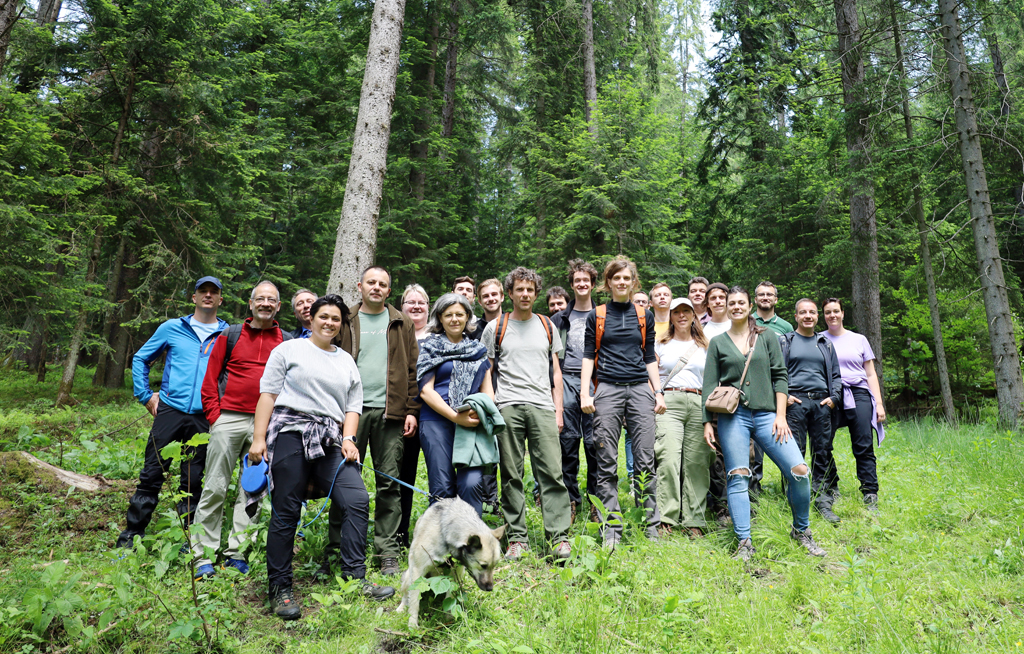
Project Conclusion in 2026
As INFORMA enters its final year, the consortium reaffirms its commitment to science-based forestry, helping to ensure that European forests are resilient in the face of climate change.
The project’s final meeting will take place in Valencia during the first week of June 2026, marking the close of an international collaboration that aims to leave a lasting mark on European forest policy.



